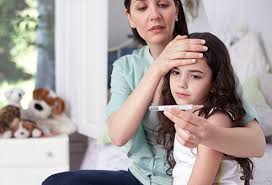Seizures Following Vaccination
What are febrile seizures?
The word “febrile” refers to having a fever. A seizure is a convulsion or fit of uncontrolled body movements. A “febrile seizure” refers to a seizure/convulsion associated with a fever in a child. Febrile seizures usually last around one or two minutes and can occur with any illness that causes fever, such as colds, influenza, or ear infection. They are most common with fevers of 102°F (38.9°C) or higher, but they can also happen at lower body temperatures or when a fever is going down. A person experiencing a febrile seizure may lose consciousness.
Who is likely to have febrile seizures?
Most febrile seizures happen in children between the ages of 6 months and 5 years. Up to 5% of young children will have at least one febrile seizure. The most common age range for children to have febrile seizures is 14–18 months.
About 1 in 3 children who have one febrile seizure will have more febrile seizures during childhood. If a member of a child’s immediate family (a brother, sister, or parent) has had febrile seizures, that child is more likely to have a febrile seizure.
How serious are febrile seizures?
Febrile seizures can be frightening, but nearly all children who have a febrile seizure recover quickly, are healthy afterwards, and do not have any permanent neurological damage. Febrile seizures do not make children more likely to develop epilepsy or any other seizure disorder.
For more information on risks, outcomes and management: https://constitutionwatch.com.au/seizures-following-vaccination/


